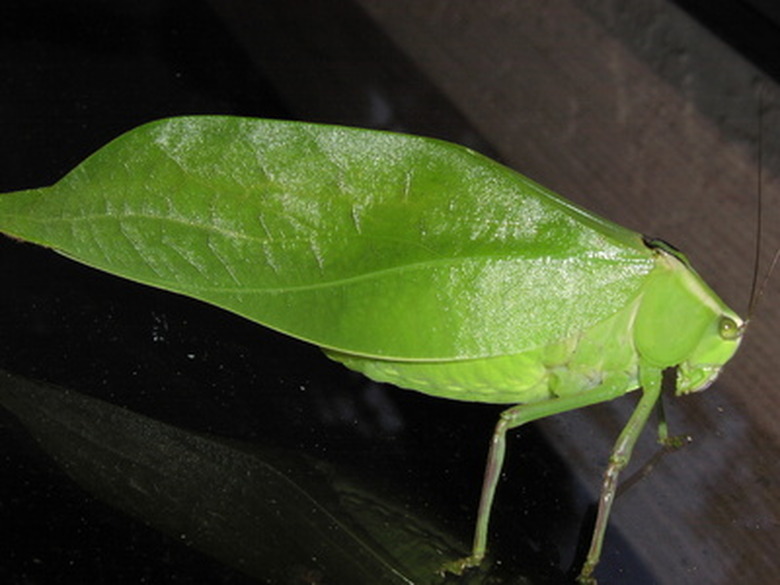Diet Of A Leaf Insect
What do leaf bugs eat? Leaf bugs (also called leaf insects) are herbivores, along with their close relatives, stick insects. All types of stick insects and leaf bugs belong to the order Phasmida. Like their names suggest, leaf insects look like leaves, and stick insects look like sticks. This is an ecological strategy called mimicry, which helps these small creatures stay hidden among the plants they resemble. Phasmids – a name for this group of bugs – do not eat all types of plants, and each species has its own preferences, but many leaf bugs eat a variety of food plants.
What Leaf Bugs Eat
What Leaf Bugs Eat
Almost all types of stick insects and leaf bugs will eat brambles. Brambles are prickly shrubs that usually belong to the genus Rubus. Raspberries, blackberries and dewberries are all considered brambles, and these plants are preferred by most phasmids.
Roses are also common plants in the diet of a leaf insect. Roses (Rosa spp.) are related to brambles, and Keeping Bugs notes that if a stick or leaf bug eats brambles, it will probably munch on rose leaves too.
Other plants preferred by leaf insects include oaks (Quercus spp.), beech (Fagus spp.), eucalyptus (Eucalyptus spp.) and privet (Ligustrum spp.). If you are keeping a leaf insect as a pet, it's easy to grow some of these plant species or find them in your neighborhood.
Finding Food for Leaf Insects
Finding Food for Leaf Insects
Although you might assume that leaf insects would avoid eating plants that could make them sick, this isn't necessarily the case. Some types of leaf insects appreciate multiple types of plants to feed on, but some species of the bugs can only eat a few specific plants. If you are collecting food for a pet leaf bug, research the particular diet of your insect before introducing new foods.
Brambles are a safe choice for most leaf insects. In many places, brambles stay green all year long, and they often grow wild in hedgerows or natural areas. Oak and beech leaves are usually easy to find in parks and backyards, and there are thousands of leaves on one tree, but the leaves change colors in the fall and drop from the trees in the winter, so they are not a year-round food source for leaf insects.
Eucalyptus grows abundantly in some areas of the United States, and many types of stick insects and pet leaf bugs will eat the fragrant leaves of this fast-growing plant. Also, privet is a commonly grown plant that stays green all year and is usually accepted by leaf insects. If you collect leaves ahead of time to feed to a leaf insect, the Amateur Entomologists' Society recommends keeping them fresh by placing them in a small jar or vase with water.
Plants to Avoid
Plants to Avoid
When collecting food for a leaf insect, the most important guideline is to avoid plants that have been sprayed with pesticides. These chemicals are toxic to insects like leaf bugs, so it's safest to steer clear of plants from garden centers and florists, as they are often treated with pesticides to keep bugs from chewing on their leaves and stems.
Another rule of thumb is to choose mature, deep-green plant leaves. Avoid new leaves, which are usually bright green, as this fresh plant growth can contain chemicals that are poisonous to leaf and stick insects. This is especially true for bramble and ivy leaves. Also, avoid black leaves that have been damaged by freezing temperatures.
In northern climates, it can be a challenge to find plants to feed a pet leaf insect during the winter. It's cheapest to grow your own plants indoors, but if you don't have the time or space to do this and must purchase plants, look for organically grown food plants to keep your leaf bug healthy and safe from pesticides.
Cite This Article
MLA
Sloane, Christina. "Diet Of A Leaf Insect" sciencing.com, https://www.sciencing.com/diet-of-a-leaf-insect-12339981/. 30 September 2021.
APA
Sloane, Christina. (2021, September 30). Diet Of A Leaf Insect. sciencing.com. Retrieved from https://www.sciencing.com/diet-of-a-leaf-insect-12339981/
Chicago
Sloane, Christina. Diet Of A Leaf Insect last modified March 24, 2022. https://www.sciencing.com/diet-of-a-leaf-insect-12339981/
